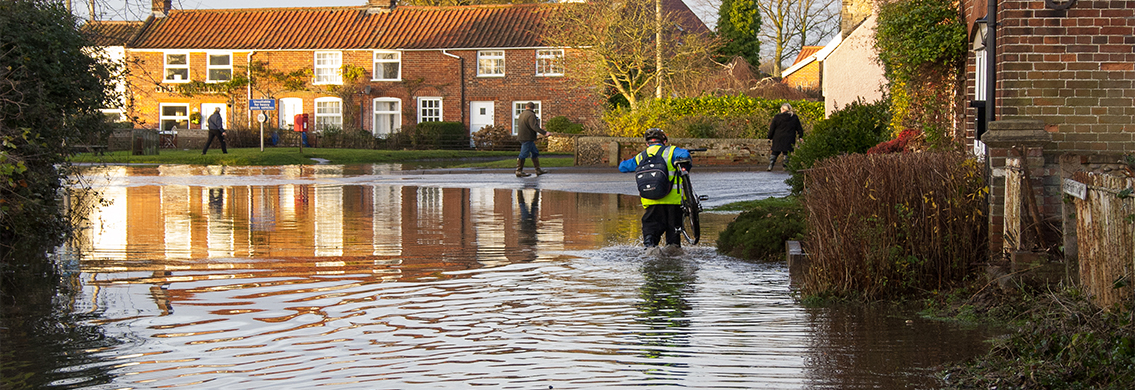An act of god is defined as ‘any accident or event that is not influenced by man’. For insurance purposes, a simpler way to put it is ‘events that occur through natural causes and could not be avoided through the use of caution and preventative measures’. In essence the phrase refers to natural disasters.
Generally speaking, when you think ‘act of god’ you think hurricanes, tornados, hail stones or earthquakes and although these are all natural disasters, so are all classed as an ‘act of god’, the lines are slightly more blurred than you may realise.
For example, if a fire breaks out and your house is damaged as a result of someone discarding a lit cigarette, this is not an act of god as it was started by man and could have been prevented. If a fire was started by a lightning bolt, however, this would be classed as an act of god.
Because of the blurred lines between what does and does not constitute as an act of god, insurance companies nowadays try not to rely on the term ‘act of god’, but instead tend to be clearer with their policy terms and conditions and specifically outline what is and isn’t included. It is also worth noting here that an act of god is not the same as a similar legal concept known as force majeure. This concept is normally noted within commercial contracts as a protection clause which provides cover against ‘unforeseen circumstances’.
What does an act of god mean for my home insurance policy?
Insurance rates are based on risk. An example of this is a burst water pipe or a leak in your bathroom. Insurance providers are able to better calculate home insurance rates based on these types of occurrences as they are more common, especially in the UK, than say an earthquake or a bush fire.
An act of god, on the other hand, is a very rare and unpredictable event that is usually not classified by insurance providers as a ‘standard risk’, but instead, each insurance provider will outline their terms on the matter within their policy terms and conditions. Based on this, usually ‘acts of god’ are not covered as part of a standard home insurance policy. That said, certain elements that could be classed as a natural disaster, such as a flood, might be which is why, unfortunately, the lines appear to be so blurred. You will need to contact your home insurance provider to further discuss the exclusions of your home insurance policy.
Can I protect my home against an act of god?
When purchasing your home insurance policy it is always a good idea to thoroughly read through and be aware of the exclusions of your policy. Being aware of such exclusions may help you to protect your home from some natural disasters. For example, if you live in a floodplain, although most insurance providers provide cover for flood damage, it is worth checking your insurance policy to make sure you are covered.
Additionally, although storm damage is generally covered as part of your insurance policy, no one wants to go through the hassle of making a claim. So we have come up with our top tips to protect your home from storm damage, these include:
- Park your car in the garage- it’s less likely to be hit by falling branches here
- Secure or lock away loose objects such as bikes, garden furniture and children’s toys
- Make sure your roof tiles are regularly checked and not loose
- Secure any weak fencing
The definition of an act of god changes between insurance providers, so make sure you get as accurate a definition as you can.
